- Home
- Mark Chadbourn
The Ice Wolves Page 6
The Ice Wolves Read online
Page 6
“You think the wolf cut off the gas supply?” Brad went to the window where the storm had grown even more intense. The entire house appeared to be floating in white. “Can it do something like that? I mean, does it think like a human, or is it just an animal?”
Hellboy remembered the alien intelligence he saw in the red eyes. “It’s smarter than you think. If you smell gas, call out. I don’t want us going up in a fireball.” Hellboy held the lamp high to illuminate the door. The padlock hung open. “We can head down there in a while—”
“What a good idea,” Lisa interrupted sardonically. “In a haunted house, with the lights out, and the storm getting worse, go down into the subcellars where all the spooky things are. Yep, top of my list.”
“First I want to check if the gas going out is the first sign of some kind of attack,” Hellboy continued.
“I thought this place was supposed to be protected,” Lisa said. “Yeah, I get what he meant now. Some kind of . . . charm . . . or spell . . . or something. Protected from the supernatural.”
“That kind of protection’s great until somebody finds a way past the defenses.”
“Afraid the wolf’s going to huff and puff and blow the place down?” Lisa added wryly.
“Glad to see you’ve still got your sense of humor.”
The howling wind encircled the house in its grip, rattling the windows, reaching down chimneys and under doors, the cadence of its echoes sounding at times eerily human. Lisa and Brad kept close to Hellboy as he lit their way.
In the drawing room, the lamplight played off the glass cases and glittered in the black eyes of the stuffed animals so that it appeared they were alive and watchful. Lisa’s attention was drawn by an empty case.
“Something used to be in there, I’m sure,” she said.
“I don’t remember,” Brad replied, distracted.
Unsettled, Lisa inspected the case, but as she neared, Hellboy saw her attention drawn to the one next to it, in which a stoat scrambled over grass into a tangle of vegetation. Its head was half turned back toward her.
“Come on, Lisa,” Brad pressed. Hellboy had been concerned about his bottled-up emotions, but since he had spoken of his mother it was like a dam had started to crack, his mounting emotional stress manifesting as frustration.
Lisa tried to focus on the empty case—the glass had been lifted slightly, so that it lay at an angle with a gap at one side—but Hellboy saw her gaze keep returning to the stoat and its unremitting stare. Its lips were drawn back from its needle-sharp teeth, and as they watched, the lips appeared to ripple slightly and draw back further, as though the stuffed animal was snarling at Lisa. She recoiled, half stumbling against a table.
“Just a trick of the light,” Hellboy said, though he wasn’t convinced that was the case.
Lisa forced a smile, but she couldn’t resist one backward glance as they left the room.
Back in the hall, they came to a halt and listened to the still house. The noise of the wind outside was a constant distraction, but the building still felt too quiet, as though the subtle creaks of boards and hiss of water in pipes were being stifled.
“Dad?” Brad called hesitantly.
There was no response.
“He’s probably just sulking somewhere,” he added unconvincingly.
As they stood listening, a strong smell of roses crept up on them unconnected to any draft. Sickly sweet and cloying, it hung in the air, with odd notes of rotten fruit lying behind it.
“What is that?” Lisa said.
“Who knows, in an old place like this?” Brad replied.
Hellboy wrinkled his nose. “I don’t like it.”
“Roses?”
“Standard sign of a haunting. Odd smells. Apports or out-of-place objects. Unusual noises—”
A sound like a falling brick crashed a few feet away, making them all jump. There was no sign of anything that could have caused it.
“Just like that,” Hellboy continued, adding with a mutter, “Playing with us.”
“Ghosts don’t scare me,” Brad said flatly. His eyes had a frozen, faraway look as he remembered something much worse.
“They should. They’re not all wisps of smoke. And those that are can still drive you out of a window or make sure you trip down the stairs if the mood takes them.”
“Who’s haunting this place?” Lisa asked. Hellboy saw her hands were shaking again. She thrust them behind her to hide them from him. “Abraham Grant?”
“Could be anyone who’s died here. There are sites like this all over the world. People die, and then just stick around. Some are just mischievous. They like a joke at the living’s expense. Others don’t like the fact they’re dead. They’re the worst. It’s like they had a little bit of bad feeling at the time they died, but in the afterlife it just ate them up. Turned them sour from the inside out. They’ve forgotten what it’s like to be alive, or they’re jealous of the living, or they want to spread some of their misery and bitterness around. They can drive you insane, or kill you. Usually both.”
Lisa eyed the dark at the top of the stairs. “Why this house? Why not next door?”
“Some places have peculiar qualities, just like Abraham Grant believed. Points where ley lines converge, tracks of energy in the land that dowsers can follow. They’re usually pretty good places. Uplifting. But there are things called negative leys or black streams, and where they meet you get all sorts of trouble. Hauntings, murder, sickness.” Hellboy shrugged. “That’s what I’ve heard. Sometimes with this kind of stuff there aren’t any rules, or not ones that you and me get to know about. Stuff happens. We deal with it. I wouldn’t worry too much about the why of it.”
“I like to try to make sense of things,” Lisa said. “But then I never made sense of Iraq.”
She glanced at Brad, but he didn’t respond.
As they climbed the stairs, they all became aware of an unsettling quality that had descended on the house; it felt like a room that someone had only just vacated. The more they climbed, the more the lamp appeared oddly ineffectual, as if the dark was pressing tighter and tighter against them. On more than one occasion, they felt someone was standing an inch behind their shoulders, forcing them to glance repeatedly back. It only added to their mounting uneasiness.
“If the wolf had got in, we’d hear it, right?” Lisa whispered.
“Unless it was really, really quiet,” Hellboy replied.
“Thanks for putting my mind at rest,” Lisa said acidly.
Finally, they made it to the attic room where the row of windows looked out over the rooftops and down to the city. Although they had known it instinctively, they could now see there was something unnatural about the storm, in the way that it appeared denser and more intense at ground level, but at that height, visibility was much greater. Through the swirls of snow they could make out the roofs of nearby houses, and occasionally it thinned enough so they could glimpse the twinkling lights of downtown. Overhead, the clouds formed a dense, slate-gray bank.
For a while, Lisa fired questions about how the snow tied in to everything else that was happening, but when Hellboy couldn’t answer them, she only got more frustrated.
“Doesn’t look like it’s going to clear any time soon,” Hellboy noted.
“The snow makes perfect cover for the wolf.” Lisa rubbed her fingertips over the windowpane and then dragged a nail that left a line. “Wow. Frost, on the inside. The cold is really reaching in.”
“Hand me the opera glasses.” Adjusting the binoculars, Hellboy peered out into the night, scanning slowly across the roofs until he came to a halt on the house across the square. A dark bulk hunched on the edge of the roof, close to the gutter. Refocusing, he saw the wind lift the fur, the head rotate slowly until those blazing red eyes came into view. Hellboy couldn’t shake the feeling that the wolf could see him, despite the gulf between them. With eyes that could scrutinize prey at a great distance, unflagging stamina, great strength and agility, and a ferocity
untrammeled by compassion, it was a machine made for killing.
“It’s out there?” Brad asked.
Hellboy nodded. “Keeping watch in case we leave the house.”
“So we really are trapped here,” Lisa said. “I’ve been in some shitty places over the last few months, surrounded by mines, guns targeted at me by snipers, but right now I’d rather be there than here.”
As Hellboy half lowered the glasses, he froze, and quickly replanted them against his head, trying to find what he thought he had glimpsed.
“What is it?” Brad asked. “Is it moving?”
“There’s another one.” On an adjoining roof, another wolf prowled along the pitch, eyes sparking in the blizzard.
“Two?” Lisa asked uneasily. She pressed against the glass, but the lamplight inside made it difficult to see anything out in the night.
A troubling thought gripped Hellboy, and he slowly moved the opera glasses across a wide arc. A third wolf sat motionless like a gargoyle on another roof. Across the tiles nearby, two other wolves stalked. He counted seven in all: a pack. How many more were there that he couldn’t see, on the roofs next to the Grant Mansion, down at street level, prowling through the dense blizzard across the square, hiding in doorways and alleys, circling the house as they waited patiently for an opportunity to attack?
“What can you see?” Lisa asked, still pressed against the glass.
“Nothing to worry about right now.” Hellboy slipped the opera glasses into his pocket.
“If it’s all clear, let’s go check that door,” Brad suggested. “The quicker we can get the job done, the quicker we can get out of here.”
“Wait,” Lisa began. “I think I can see movement out there—”
The window shattered as a heavy object crashed against it. Screaming in shock, Lisa threw herself backward against Hellboy, knocking the lamp from his hand. As it turned in an arc toward the floor, he glimpsed the wolf’s head framed in the broken glass, mouth torn wide, eyes filled with a hateful intelligence. Gripping the broken gutter, one foot on the windowsill, the beast had been above their heads all the time.
“We come with the winter.” The words were caught in a rumbling growl emanating from deep in its throat. “All of us. We come with the snows.”
And then the lamp hit the floor and the flame was extinguished, and in the engulfing darkness there was only the wind whistling through the broken window and the sound of Lisa’s scream.
CHAPTER 7
—
When the window broke and the attic room was plunged into darkness, Lisa scrambled out of the door. The vision of the wolf burned its way into Brad’s mind, but once he was aware Lisa had left the room, he was surprised how quickly the horror faded. Realizing the thing hadn’t broken into the house, his only concern was for Lisa. Brad heard the familiar sound of her shoes clacking on the bare boards outside, and then her cursing as she attempted to navigate the winding stairs without light. Afraid she would break her neck, he ran after her, calling her name.
It wasn’t like her to panic. In Fallujah, she had always kept a cooler head than he had: saving his life when the masked Shia terror squad came hunting near the border with Iran, and helping the children during the marketplace suicide bomb when everyone else had been running in fear. She’d been the rock when he felt like his own life was falling apart, and it unsettled him immensely to see the foundations of her life shifting since Hellboy had brought them to Boston. Now it was his turn to help her.
Gripping the rail, he cautiously negotiated the stairs. They were old, and hadn’t been repaired in a long time. Some of the boards were lifting, others had protruding nails, and he remembered acutely what Hellboy had said about malignant ghosts guiding people to fall out of windows. Or down stairs.
From the attic room, he heard the thunder of gunfire and more shattering glass. Hellboy was dispatching the werewolf, but Brad already knew the beast wasn’t a real threat. Not yet. He’d seen how quick and savage it had been on the journey up Beacon Hill. If it had really been able to cross the house’s protective boundary, it would have been in the room before they had known about it. The attack had been designed to create fear, and it had worked.
And somehow, for all the beast’s ferocity and sheer supernatural terror, it paled against the real terrors lurking inside him; no external danger could ever match that sucking darkness in his heart that threatened to pull him in, every waking hour, the thing he’d only managed to control by locking it down, not addressing it. But now it was all shifting.
“Lisa!” he called.
He didn’t like the way his voice echoed. The way the word came back at him didn’t sound natural; it was as if someone had simply repeated her name in his voice, but with a faint inflection of contempt.
The second time he called, the echo came back with a note of threat. He didn’t try again.
Dampening down his anxiety over why Lisa had not responded, he eased his grip on the railing as he came to the landing of the floor below. He recalled the shutters on all the windows at this level had been fastened. A sea of darkness swam all around, making it impossible to pick out even the faintest detail; there was something almost hallucinogenic about the intensity of the gloom. He had the odd sensation that he was floating in space, and had to clutch at the wall to stop himself from pitching forward.
He listened intently. All was silent. Was Lisa hiding? His heart beat faster. What if something in that place had already gotten to her? What if she was injured? What if she was dead? A pang of anxiety made him feel queasy, and although he tried to resist, for the first time he considered what life would be like without her. He found the idea devastating. She’d been such a part of his daily existence for so long, he’d started to take her for granted: her jokes, her minor irritations, her warmth, and support.
Since the marketplace bomb, most days had been a fog that he had wandered through blindly, numb, ragged emotions lost beneath gray waves. Sometimes he had thought he might not even make it through till dusk, and then, when the sun had set, he was afraid he would never see dawn. But Lisa had always been there to hold his hand—or kick his ass—to say the right words at the right time, and to give him hope without ever letting him know that that was what she was doing.
“Lisa,” he called tentatively. This time there was no echo at all.
Feeling along the wall, he found the next flight of stairs, listening all the time, hearing nothing but the wind. On the floor below, the dark was a little grayer, thanks to slivers of light making their way through the snow-caked windows, but there was still barely enough to see.
A familiar smell reached him at the top of the next flight of stairs, triggering a rush of memories that sent a convulsion through him. It went as quickly as it came, but he was already drawn by the lure of the desperate past, and he gripped the railing tightly and unsteadily made his way down.
On the first floor, the door to the nursery shone a spectral white in the soft glow of the street lamp leaking through the nearby window. It was ajar. Through the gap, he glimpsed faint movement, the fleeting sight of Lisa’s shirt. He caught the hint of her perfume. She was investigating where they had found the opera glasses, or she was hiding, retreating to childhood both literally and metaphorically.
“Hey,” he called gently.
When there was no reply, he pushed the door open and stepped inside. Instantly, he was engulfed in the sensory sweep triggered by the same smell, spice and sweat and hot canvas. He didn’t hear the door close behind him, nor was he aware of the dark sweeping in. Lisa too was forgotten. He was walking through the souk, the heat heavy on his face. It was crowded, people shouting in the local dialect, arguing over goods, laughing. Someone offered him a bolt of scarlet silk, urging him to feel the quality. He could smell meat cooking on a charcoal barbecue.
Ahead of him was the boy, ten years old, an open, smiling face, familiar, so familiar. His eyes locked on Brad’s, and their whole existences were laid out side by side. From a s
tall came the boy’s father, also smiling, his new purchase, an iron pan, clutched happily. He bent down to show it to his son.
Not now, Brad thought. Not now. Tears stung his eyes.
The blast happened soundlessly, or that was how he remembered it, and was living it. The boy and his father were torn apart by the shock wave, torn apart by the shrapnel. It was raining all around Brad, and he recalled thinking how strange that was, that he could get wet from a shower in the middle of a hot, dry country, and then he was turning over, still remembering the boy’s smile, remembering the past, tears burning his cheeks, then and now, turning over and over.
He must have called out, for Lisa’s arms wrapped around him and she laid her head on his back, as she had done so many times in the months since, whenever the image had come back to him of the boy and his father, of death striking in the heart of the mundane, and every time she had saved him. He would never forget how much she had saved him. His life was hers, for there was many a time when he would have ended it, many a time when he would have gone to join the boy and his father, to escape all the pain and the heartache; finally to find some peace.
She held him tight.
“Thank you,” he whispered. His cheeks burned from the tears.
As the familiar aromas faded, so did the potent, affecting images, and he was back in the dark nursery. His chest heaved, and slowly the emotions ebbed and he returned to himself.
“Don’t say anything,” he began quietly. “Just listen. I’ve never told you how much you’ve done for me. I know, I know. Shut up, Brad! You’re a friend doing what friends do. I’ve heard it all so many times. But what you do is more than friends, Lisa. You give so selflessly, and I just take, and take, and I never spare a thought for how you must feel, and what you need. I’m an idiot, like you say. But that’s going to change. I’m going to be better, and I’m going to be good for you. I’m going to be there for you, for once. And . . . and . . . ”

 The Hounds of Avalon tda-3
The Hounds of Avalon tda-3 The Devil's Looking-Glass soa-3
The Devil's Looking-Glass soa-3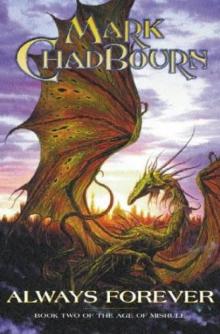 Always Forever taom-3
Always Forever taom-3 The Scar-Crow Men
The Scar-Crow Men Destroyer of Worlds kots-3
Destroyer of Worlds kots-3 Jack of Ravens kots-1
Jack of Ravens kots-1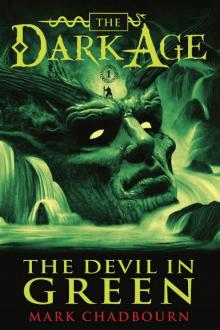 The Devil in Green
The Devil in Green World's End
World's End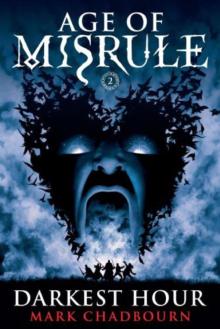 Darkest Hour (Age of Misrule, Book 2)
Darkest Hour (Age of Misrule, Book 2) Destroyer of Worlds
Destroyer of Worlds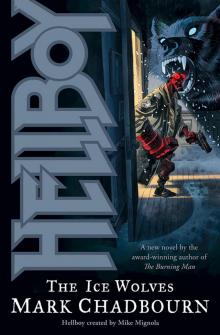 The Ice Wolves
The Ice Wolves The Devil soa-3
The Devil soa-3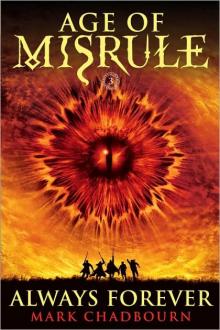 Always Forever
Always Forever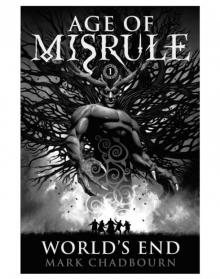 World's End (Age of Misrule, Book 1)
World's End (Age of Misrule, Book 1) The Scar-Crow Men soa-2
The Scar-Crow Men soa-2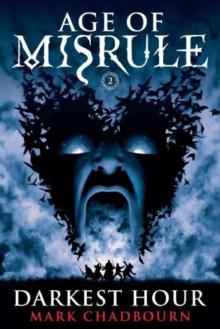 Darkest hour aom-2
Darkest hour aom-2 The Devil's Looking-Glass
The Devil's Looking-Glass The Silver Skull
The Silver Skull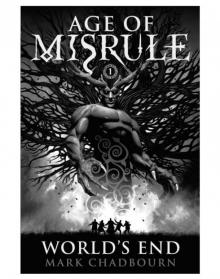 World's end taom-1
World's end taom-1 Jack of Ravens
Jack of Ravens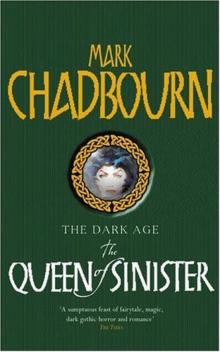 The Queen of Sinister
The Queen of Sinister